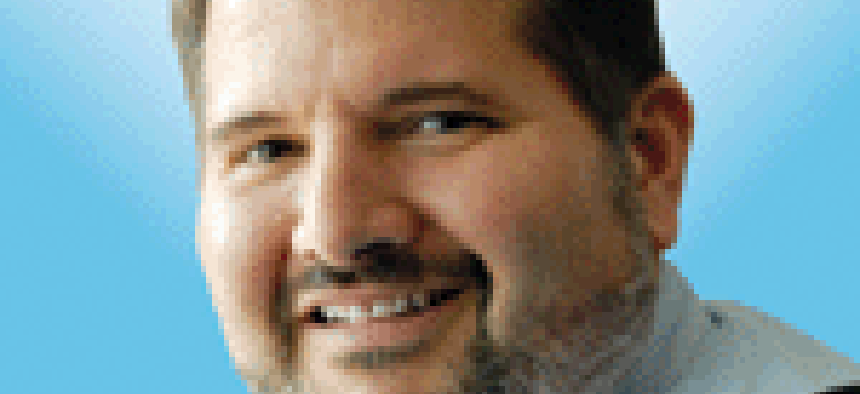Not already in health IT? It might be too late.

Things are happening fast in the health IT market, and if you haven't spent the last few years getting ready, you might have already missed a big opportunity.
Michele Kang’s message was very clear during her presentation at the annual Raymond James Government Services & Technology Summit this week: If you aren’t in the health care market, it’s probably too late.
Kang, CEO of Cognosante LLC, founded her company in 2008, after serving as the vice president and general manager of Northrop Grumman’s health solutions business. Cognosante has grown to $100 million in revenue and 310 employees. It was probably the smallest company to make a presentation at the summit.
Its focus is health care, and Kang said that she is expecting a flood of new opportunities.
Health care reform has survived the legal challenges, and “is here to stay,” she told the audience. Companies that waited to see if the reform law would survive the challenges are too late to the game.
Upcoming deadlines, particularly in the state and local market, will force a large number of solicitations to come out over the next six months, she said. The states have $2 billion to spend on health exchanges.
The public sector, particularly Medicaid, is leading the way, and there is a critical need for the transformation of processes ranging from how claims are adjudicated, to maintaining electronic health records, to building health exchanges.
A point that Kang returned to several times was that the time to position your company for these opportunities has past. You need to be there now.
“If you haven’t been investing and building the last two years, it’s too late,” Kang said.
Whether she is right about health IT or not (I believe she is), her message should resonate across multiple segments of the market, particularly in today’s environment.
The current budget situation makes it paramount for companies to be positioning themselves, now, for where the market will be in two years; in fact, smart CEOs strive to lead their companies this way, no matter what the budget environment.
In many ways, it sounds like Kang has done this. She founded Cognosante in 2008, just as health care reform was beginning to take shape. Since then, they’ve been winning business among state and federal agencies. She’s also been hiring executives who have experience at much larger companies such as Vangent, Argon ST, Affiliated Computer Systems, and Stanley Associates.
They’ve also completed an acquisition.
“We have the structure to grow into a several hundred million dollar a year company,” she said.
Lest you think Kang’s presentation was just an opportunity for her to brag about her company, she also listed several others she sees as well position to catch the flood of health IT opportunities in the next two years: Deloitte, CGI Group, Accenture, ACS, and Maximus.
“These are our competitors and our potential partners,” she said.
While several deadlines need be met by states, health organizations and providers over the next two years, Kang said that the market will remain robust beyond 2014. “There will not be a cliff,” she said.
Health care reform will likely add 60 million more recipients to Medicaid. The country’s demographics are also changing, and will put more demands on the health care systems. And, not insignificantly, budgets will remain a concern.
“Health care is under a lot of pressure to reduce costs, so that will keep a lot of momentum going,” she said.
For her company, a major opportunity will be in data analytics, reducing costs and stopping fraud, waste and abuse. Systems will be built that can ping the data in health exchanges and electronic health record systems to verify information before payments are made, instead of looking back at payments after they have been made, she said.
“We have to do things differently,” Kang said.
NEXT STORY: Force 3 names new CEO


